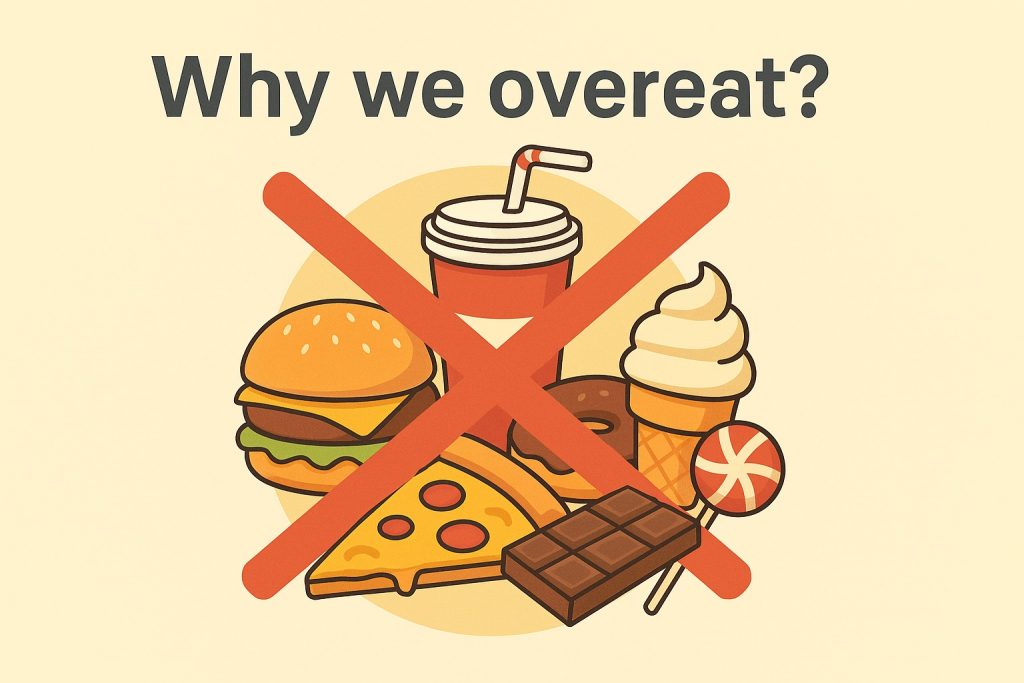Why do we keep eating even when we’re full? The answer lies not just in willpower or habits, but in biochemistry — the complex web of hormones, brain signals, and chemical feedback loops that regulate hunger and satiety. In today’s food-abundant world, these ancient systems can be easily tricked, leading to overeating and weight gain.
How Hunger Works
Our bodies are designed to maintain balance through a system called homeostasis. When it comes to food, that involves regulating energy intake to match energy needs. But this system is guided by hormones — tiny chemical messengers with big effects.
Key players include:
- Ghrelin – the “hunger hormone,” released by the stomach when empty
- Leptin – the “satiety hormone,” released by fat cells to signal fullness
- Insulin – regulates blood sugar and also plays a role in hunger control
- Dopamine – a neurotransmitter tied to the brain’s reward system
Why We Overeat
Modern diets and lifestyles can interfere with our hunger signals. Here’s how:
1. Hyperpalatable Foods
Highly processed foods rich in sugar, salt, and fat overstimulate our reward systems, leading to dopamine spikes — and repeated cravings.
2. Leptin Resistance
In people with obesity, high levels of leptin may stop working properly, tricking the brain into thinking the body is still hungry.
3. Stress and Cortisol
Chronic stress increases cortisol, which raises appetite and cravings for calorie-dense “comfort foods.”
4. Disrupted Sleep
Lack of sleep increases ghrelin and decreases leptin, making you hungrier and less able to feel full.
5. Insulin Spikes
Eating refined carbohydrates causes blood sugar to rise rapidly — followed by a crash that triggers more hunger.
The Body Isn’t Broken — It’s Mismatched
The hunger system evolved when food was scarce. Today, it struggles to regulate intake in a world where food is always available, highly processed, and heavily marketed.
What used to help us survive now makes us vulnerable to chronic overeating.
Can We Rebalance Hunger?
Yes — by working with, not against, our biology:
- Eat whole, fiber-rich foods that digest slowly
- Prioritize protein and healthy fats to stay full
- Get enough sleep (7-8 hours per day) and manage stress
- Avoid skipping meals to reduce cravings
- Be mindful of emotional eating triggers
Understanding how hunger works can help us make informed choices and develop compassion for ourselves when facing food struggles.
Glossary
- Ghrelin — hormone that stimulates hunger
- Leptin — hormone that signals fullness
- Hyperpalatable foods — ultra-processed foods designed to maximize taste and overconsumption
- Dopamine — brain chemical involved in pleasure and reward


